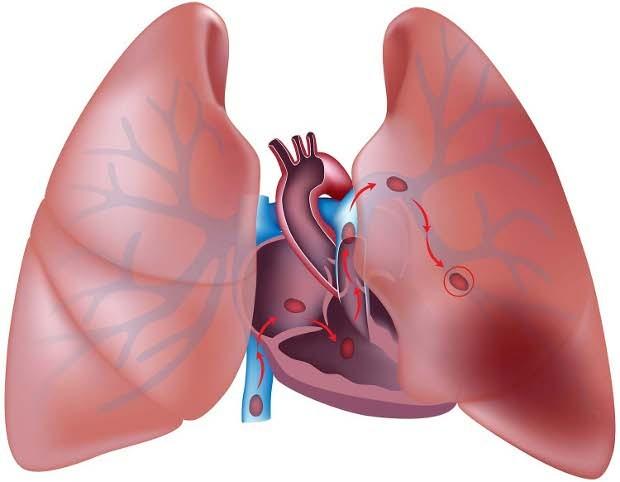People who spend too much of their time watching TV are more likely to suffer a pulmonary embolism, a team of specialists with the European Society of Cardiology caution in a new report.
The researchers go on to describe pulmonary embolisms as what happens when the pulmonary arteries are blocked by blood clots, especially ones originating in the leg vessels.
The most common symptoms of a pulmonary embolism are chest pains and trouble breathing. In extreme cases, the condition can prove fatal, the researchers behind this study warn.
How watching TV ups the risk of pulmonary embolism
As part of their investigation into how watching TV for too long can influence an individual's risk of developing a pulmonary embolism, specialists led by Toru Shirakawa of Japan's Osaka University monitored more than 86,000 people over a period of time of 18 years.
The researchers found that, of the volunteers they kept tabs on, those who watched TV for an average 5 hours or more per day were twice as likely to suffer a potentially fatal pulmonary embolism than those who averaged less than 2.5 hours of watching TV per day.
“We showed that prolonged television viewing may be a risky behavior for death from pulmonary embolism,” study leader Toru Shirakawa said in a statement, as cited by Science Daily. Interestingly, the researchers say playing computer games for too long can also up the risk of pulmonary embolism.
A possible explanation for this health complication
As noted, pulmonary embolisms are usually the result of clots forming in the legs and then migrating to arteries in the lungs, where they block proper blood flow.
Hence, specialist Toru Shirakawa and fellow researchers theorize that the reason watching TV for too long makes people more vulnerable to such health complications is that prolonged sitting or lying in bed facilitates the formation of blood clots as a result of leg immobility.
To prevent pulmonary embolisms, the scientists recommend that people take breaks to stand up and walk around while watching TV. Drinking water to counter dehydration can also help.

 14 DAY TRIAL //
14 DAY TRIAL // 

